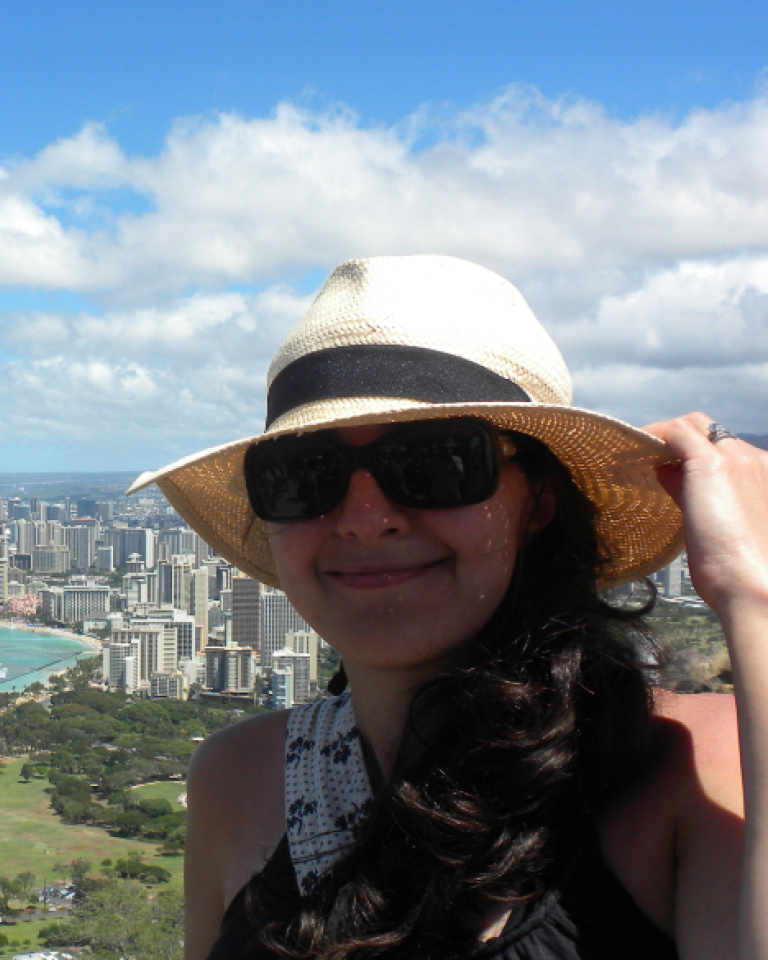Evangelia Chrysikou

MENTOR SPOTLIGHT | NOVEMBER 2013
Department: Psychology
Years at KU: 2
Q: Describe your research in a few sentences that we can all understand:
A: I am an Assistant Professor in the Department of Psychology, in the Cognitive Program. I use cognitive neuroscience methods to study how people learn and remember information about everyday objects. In particular, I am interested in the fascinating ways people use common objects to solve everyday problems creatively and efficiently (e.g., a shoe as a hammer). To address these questions, I am collecting a combination of behavioral, functional Magnetic Resonance Imaging (fMRI), and transcranial direct current stimulation (tDCS) data from healthy adults and neuropsychological populations. My research further explores the educational applications of cognitive training paradigms for the development of higher-order thinking in young adults, as well as the implications of cognitive flexibility in profiling psychiatric disorders like depression.
Q: How did you first get interested in doing research?
A: I completed my undergraduate studies in Psychology at Panteion University in Athens, Greece. Several of my professors were engaged in research and I had the opportunity to participate actively in several research projects across multiple domains within psychology, including cognitive, clinical, social, and developmental. Some of these studies were conducted ‘in the field.’ For example, I was part of a cross-cultural research project that examined interactions between mothers and their 3-month-old babies in a naturalistic setting (i.e., at the home of the families) for several hours daily over a week, which was a fascinating experience; in a different study, we collected data from 2nd and 3rd graders on a classic cognitive psychology puzzle exploring the developmental trajectory of the children’s problem solving strategies; in a yet different study we studied which events in a psychotherapy session promote best treatment outcomes. Beyond providing me with an excellent training on scientific thinking, these experiences got me ‘hooked’ on research. I couldn’t imagine myself doing anything else!
Q: Is there someone who has been a great mentor to you? What about that person made him/her an effective mentor?
A: I am lucky enough to have had great teachers and mentors throughout my career. Dr. Zaira Papaligoura and Dr. Anastassios Stalikas have been great mentors during my undergraduate years. Dr. Robert Weisberg and Dr. Nora Newcombe have been terrific advisors during my years in graduate school at Temple University. Dr. Sharon Thompson-Schill has been a fantastic mentor throughout my postdoctoral training at the University of Pennsylvania, as well as my early years as an Assistant Professor. My colleagues in the Psychology Department here at KU have also been incredibly supportive since I joined the program in 2011. Being able to observe the research strategies and teaching style of all these individuals, as well as following their insights and advice after their decades of experience in the field has been invaluable. I wouldn’t be where I am today academically without their mentorship and help.
Q: What advice do you have for undergraduates interested in doing research in your field?
A: Start early, but not too early—preferably during your sophomore year. Attend your classes; work hard in them; get to know your professors and their research. If a subfield within psychology is particularly appealing to you, read more about it starting from the studies discussed in your textbook. Explore online the research interests and read the publications of the Psychology faculty and then contact the professors you would like to work with, either as an independent study student, an Honors student, or a volunteer. Be persistent and be patient; professors are busy and receive dozens of emails per day. If you have made a good impression in their class and your research interests and future goals match those of the lab you would like to work in, you have a much higher likelihood of being successful in obtaining a research position. Being exposed as an undergraduate to research in the subfield of your choice can be an enlightening experience: you may find that the research lifestyle exactly matches your expectations and interests; or you may decide this is not the right career path for you and opt for other alternatives.
Q: What is your favorite part about mentoring undergraduates?
A: I deeply enjoy all aspects of my work with undergraduates. My favorite part is looking at a research project through the fresh eyes of a student who is not as immersed in the field as I am. I also find very rewarding the opportunity to contribute as much as possible to the academic future of a student, while shaping the next generation of research psychologists along the way.
Q: What do you find to be the most challenging part of mentoring undergraduates? Do you have any strategies that have helped you address this challenge?
A: Undergraduate students have a lot to juggle: a tight course schedule, laboratory responsibilities, off-campus jobs, leadership positions, volunteer work. This can often make their availability to truly engage in research limited. To address this challenge my students and I typically discuss and set up a very specific list of research goals and weekly tasks for them to accomplish that are tailored to their individual schedules, as well as their future academic or professional aims. I have found that is very important to realize early that conducting scientific research depends on self-motivation; this is substantially supported by having clear and specific goals and a roadmap toward their attainment.
Q: How do you spend your time when you aren’t teaching or researching?
A: I love traveling. I might be a little biased, but the Greek islands are my favorite destination. When I am at home, I enjoy cooking (particularly desserts that my lab gets to try every now and then) and I am unsurprisingly addicted to the Food Network. I also love running and swimming, Basset Hounds, the music of Jack White, independent movies, and watching endless hours of Phillies baseball.